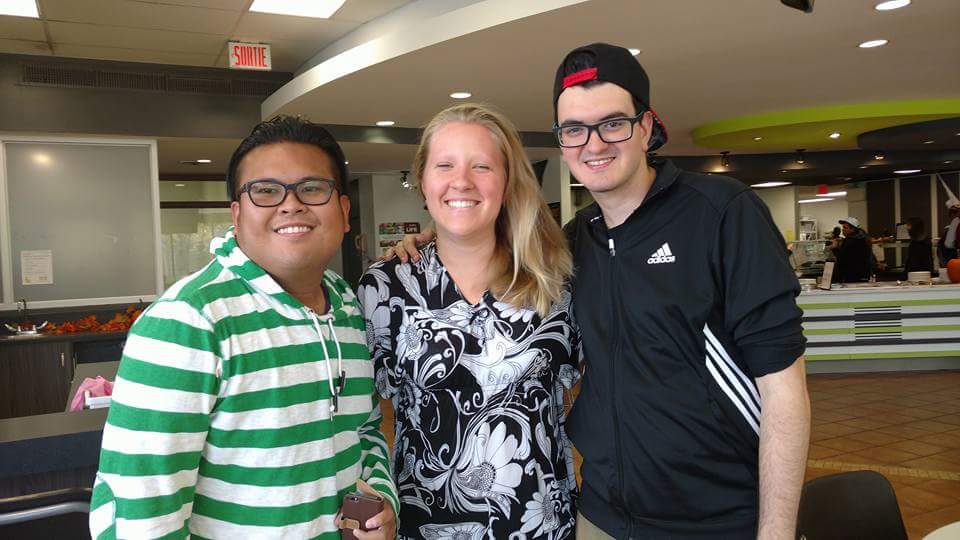How Concordia’s Centre for the Arts in Human Development helps one student enjoy her day-to-day life
My 23-year-old sister, Lisa Mancini, is fully aware of her special needs. But it wasn’t always easy for her to come to terms with them. One Concordia service, however, has helped her come to grips with her reality and embrace herself as she is.
Concordia’s Centre for the Arts in Human Development (CAHD), located on Loyola campus, gives students with special needs the platform to express themselves freely without judgment.
When she was six years old, Lisa was diagnosed with pervasive development disorder not otherwise specified (PDD-NOS), which falls under the autism spectrum. Some of her symptoms include depression, anxiety, low-attention span and difficulties learning and processing new information.
By attending CAHD, my sister was able to begin expressing her emotions in a creative way not possible in a traditional classroom. “The centre cured me of most of my anxiety. I never thought school could do such a thing,” Lisa said.
Before finding out about CAHD, my sister just couldn’t seem to find her place in society. When a friend told her about the centre, she knew this could be the catalyst for positive change in her life.
Now, seven months later, Lisa preaches about the therapy she receives at the centre, and about how it is helping her learn more about herself every day.
With the help of student interns and professional therapists, CAHD participants learn how to set goals and work towards them through therapy.
“What makes our centre very unique is it’s under a creative arts therapies paradigm,” said Stephen Snow, the co-director of research at CAHD. “The first part is to provide clinical services through the creative arts therapies for people with special needs.”
One of Lisa’s major goals was to learn how to better manage her emotions—anxiety, in particular. Through ongoing therapy, she said things are “getting better day-by-day.” Since beginning therapy in September 2016, my sister has never been happier.
My sister’s eyes light up when she is asked about her day at the centre. Some activities she participates in include painting, drama and dancing. She also receives one-on-one counseling to discuss personal issues, something that is rarely done at other Quebec universities. Lisa attends the program twice a week. “I like going to school. I like to socialize with the other adults because they can understand me,” Lisa said with a big smile.
My sister has had many breakthroughs since first attending CAHD, one being the realization that she is not alone. “I feel happy, I am able to relate with other people in my group and people actually listen to me,” Lisa said. “I feel less anxious.”
With a very strong focus on research, the program directors are always adjusting the program and trying to improve it and make it more visible. This is done through open houses and large-scale musical productions with the program’s participants.
“CAHD is a training site for graduate students who are studying art, drama and music therapy,” said Lenore Vosberg, the centre’s co-founder and director of clinical services and public outreach. “We work on social skills, human development, building self-esteem, self-confidence and communication skills. We tackle these goals over the course of three years and, by the time they graduate, it’s evident that most participants have made great strides in the accomplishment of their own personal goals.”
The centre takes referrals from the West Montreal Readaptation Centre, Miriam Home or a local CLSC. For more information about the CAHD, visit concordia.ca/cahd.
